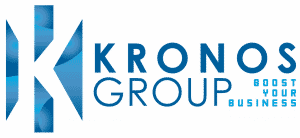Why SMEs should consider cost-saving strategies in procurement?

Summary
Small and medium-sized enterprises (SMEs) face unique challenges due to limited financial resources and intense competition. Cost-saving measures in procurement are crucial for their financial health and sustainability. This blog delves into why SMEs must consider cost-saving strategies in procurement. Through the implementation of effective strategies, SMEs can enhance competitiveness, fortify financial foundations, improve profitability, and foster long-term sustainability.
The methods used by businesses to achieve cost-saving strategies in procurement are imperative. This is underscored by the potential to redirect saved resources towards innovation, operational efficiency, and resilient supplier relationships.
Achieving cost-saving involves supplier negotiation, bulk purchasing, supplier diversity, technology adoption, inventory management, procurement consulting, streamlined approval processes, energy efficiency, training, and payment terms optimisation. These strategies enable SMEs to maximise value, optimise resource allocation, and contribute to overall business health and sustainability.
Small and medium-sized enterprises (SMEs) face a multitude of unique challenges, particularly concerning limited financial resources and intense competition.
The strategic consideration of cost-saving measures in procurement emerges as a crucial aspect of ensuring the financial health and sustainability of SMEs. The procurement process, encompassing the acquisition of goods and services, presents a significant opportunity for cost optimisation.
By implementing effective cost-saving strategies, SMEs can enhance their competitive edge, fortify their financial foundation, improve profitability, and foster long-term sustainability. This imperative is underscored by the potential to redirect saved resources towards innovation, operational efficiency, and building resilient relationships with suppliers.
Exploring the compelling reasons for SMEs to prioritise cost-saving strategies in procurement becomes imperative for success and growth in the business landscape.
Why SMEs must consider cost-saving strategies in procurement
Financial stability
SMEs often have limited financial resources, and effective cost-saving strategies can contribute to financial stability. This is often done by reducing unnecessary expenses so that SMEs can allocate resources to other critical areas of the business, such as innovation, marketing, or expansion.
Competitive edge
All industries are exposed to competitive pressures. Thus, firms are always looking for cost-saving measures which tend to enhance business operations. By offering products or services at more competitive prices, SMEs can attract more customers and gain an advantage over competitors.
Profitability improvement
Implementing cost-saving strategies in procurement directly impacts the bottom line, leading to increased profitability. Improved profit margins provide SMEs with the means to reinvest in the business, which can lead to the potential creation of a cycle of growth and sustainability.
Risk mitigation
Cost-saving strategies assist SMEs in mitigating financial risks by creating a buffer against economic downturns or unexpected market fluctuations. Having a resilient cost structure allows SMEs to weather challenging times more effectively and adapt a resilient approach to shortcomings.
Resource optimisation
Balance in resource allocation is vital. Thus, efficient procurement practices allow SMEs to optimise the use of resources, ensuring that each investment provides maximum value addition and creation—streamlining processes and reducing waste to contribute to overall operational efficiency.
Investment in innovation
The difference in firms is what stakeholders look for. Savings generated through effective procurement can be directed toward research and development, fostering innovation within the business. Innovation and uniqueness are crucial for long-term success in a changing business landscape.
Supplier relationships
Developing strong relationships with suppliers is key for SMEs. Cost-saving strategies involve negotiation and collaboration with suppliers to secure better deals in processes. Maintaining positive relationships leads to better terms, discounts, and improved overall supply chain efficiency.
Compliance and transparency
Implementing cost-saving strategies encourages SMEs to maintain transparency in procurement processes, ensure compliance with regulations and ethical standards, and build trust with stakeholders and customers, enhancing the reputation of the business and creating business direction.
Adopting cost-saving strategies in procurement is essential for the financial health, competitiveness, and long-term sustainability of SMEs, which allows them to navigate challenges, invest in growth, and remain resilient in dynamic business environments.
Methods used by businesses to achieve cost-savings in procurement
Implementing procurement cost-saving strategies is essential for SMEs to optimise their spending and enhance efficiency.
- Supplier negotiation: Negotiate terms, prices, and discounts with suppliers to secure the best possible deals and consider forming long-term partnerships with reliable suppliers for better pricing.
- Bulk purchasing: Take advantage of volume discounts by purchasing in bulk when feasible and consolidate orders to minimise shipping and handling costs, taking sourcing and purchase costs down.
- Supplier diversity: A diverse range of suppliers to encourage competition and secure competitive prices, further supplier diversification can also mitigate risks associated with the supply chain.
- Technology adoption: Utilising procurement management software to streamline processes and reduce administrative costs. Further automation can enhance accuracy and efficiency in overall processes.
- Inventory management: Implement efficient inventory management practices to prevent overstocking and holding excessive inventory that ties up capital and incurs holding and resource allocation costs.
- Procurement consulting: Making use of procurement consulting allows gaining better control over spending and standardising processes, which allows for better negotiation and consistency in supplier relationships.
- Streamlined approval processes: Clear and efficient approval processes to prevent unnecessary or unauthorised purchases, which helps in cost control and ensuring that purchases align with the firm’s needs.
- Energy efficiency: Consider energy-efficient alternatives to reduce procurement process and operational costs over time, and evaluate the lifecycle costs of products beyond their initial purchase price.
- Training and education: Training staff to enhance their negotiation skills and knowledge of cost-saving opportunities, and nurture internal processes to identify and capitalise on cost-saving strategies.
- Payment terms optimisation: Negotiate favourable payment terms with suppliers to manage cash flow effectively and explore discounts for early payments or extended payment terms in procurement processes
Incorporating these cost-saving strategies into their procurement practices helps SMEs maximise value, optimise resource allocation, and contribute to the financial health and sustainability of their business.
Why it is important to make use of a financial consultant?
Spend optimisation requires consideration of the business nature, competitive environment, negotiation skills, and economic conditions. Financial consultants play a pivotal role in optimising spending and helping businesses achieve financial objectives, such as maximising sales revenue and profit. Their expertise is invaluable in navigating complexities and ensuring successful cost-reduction strategies.




